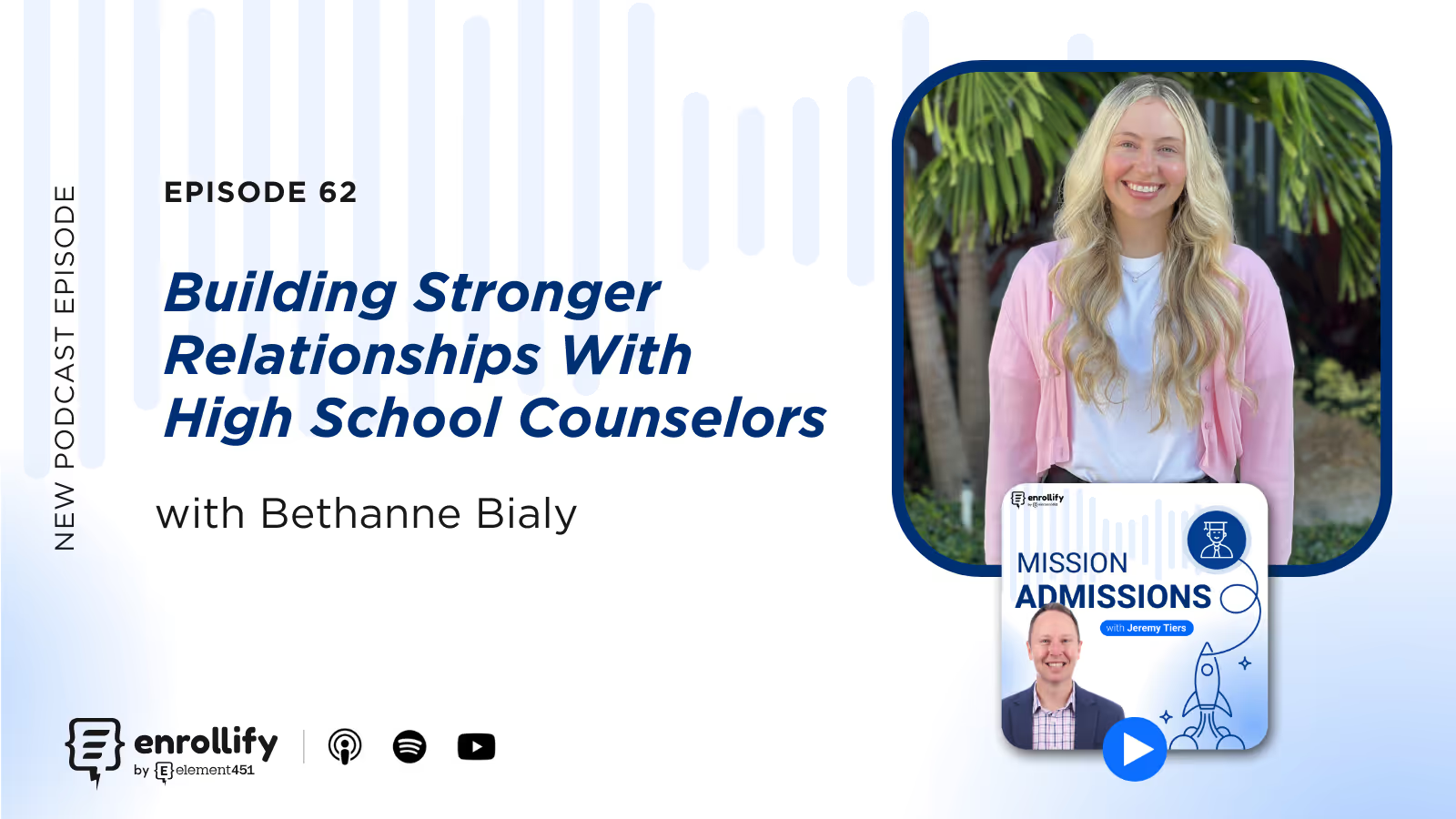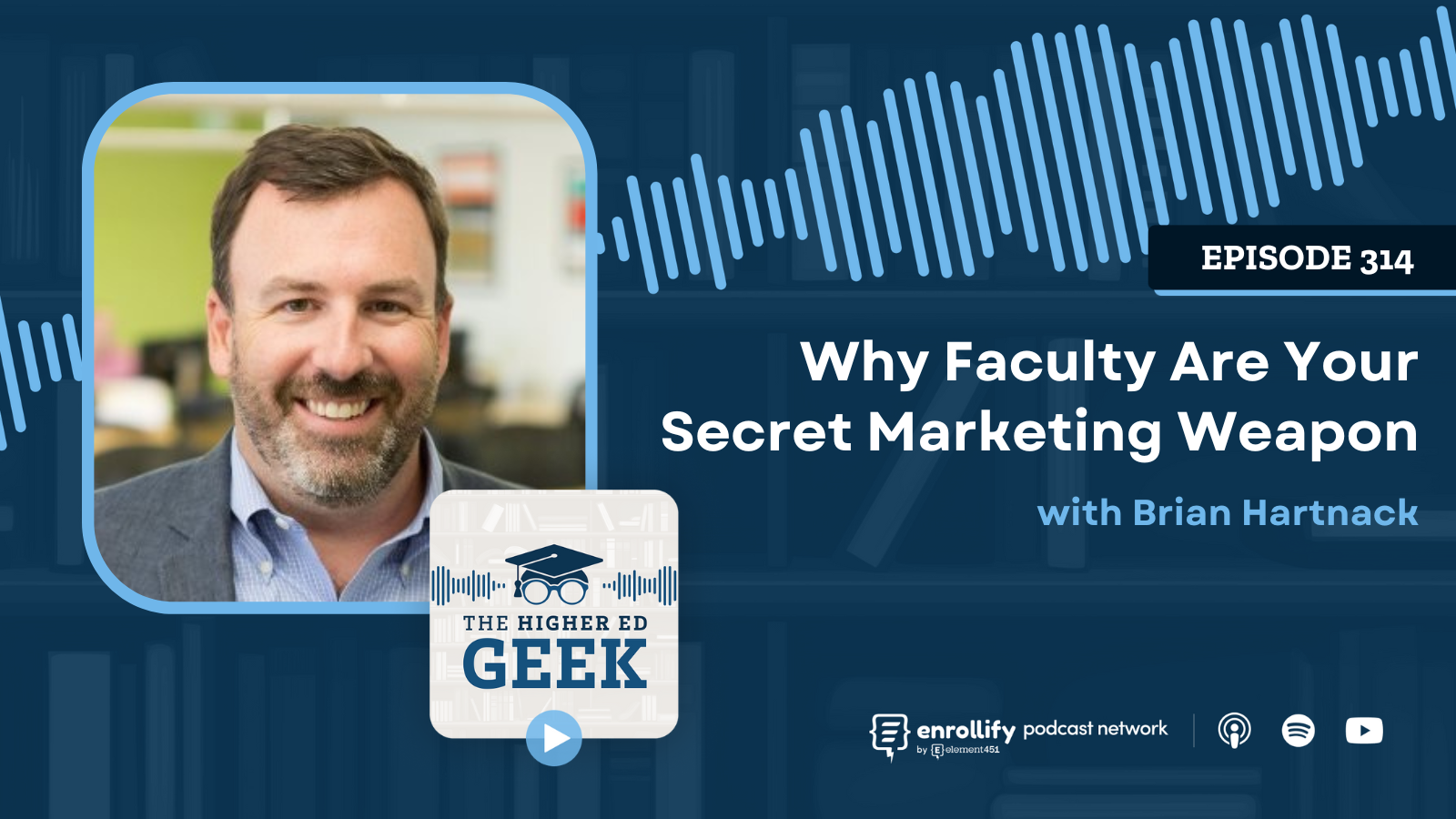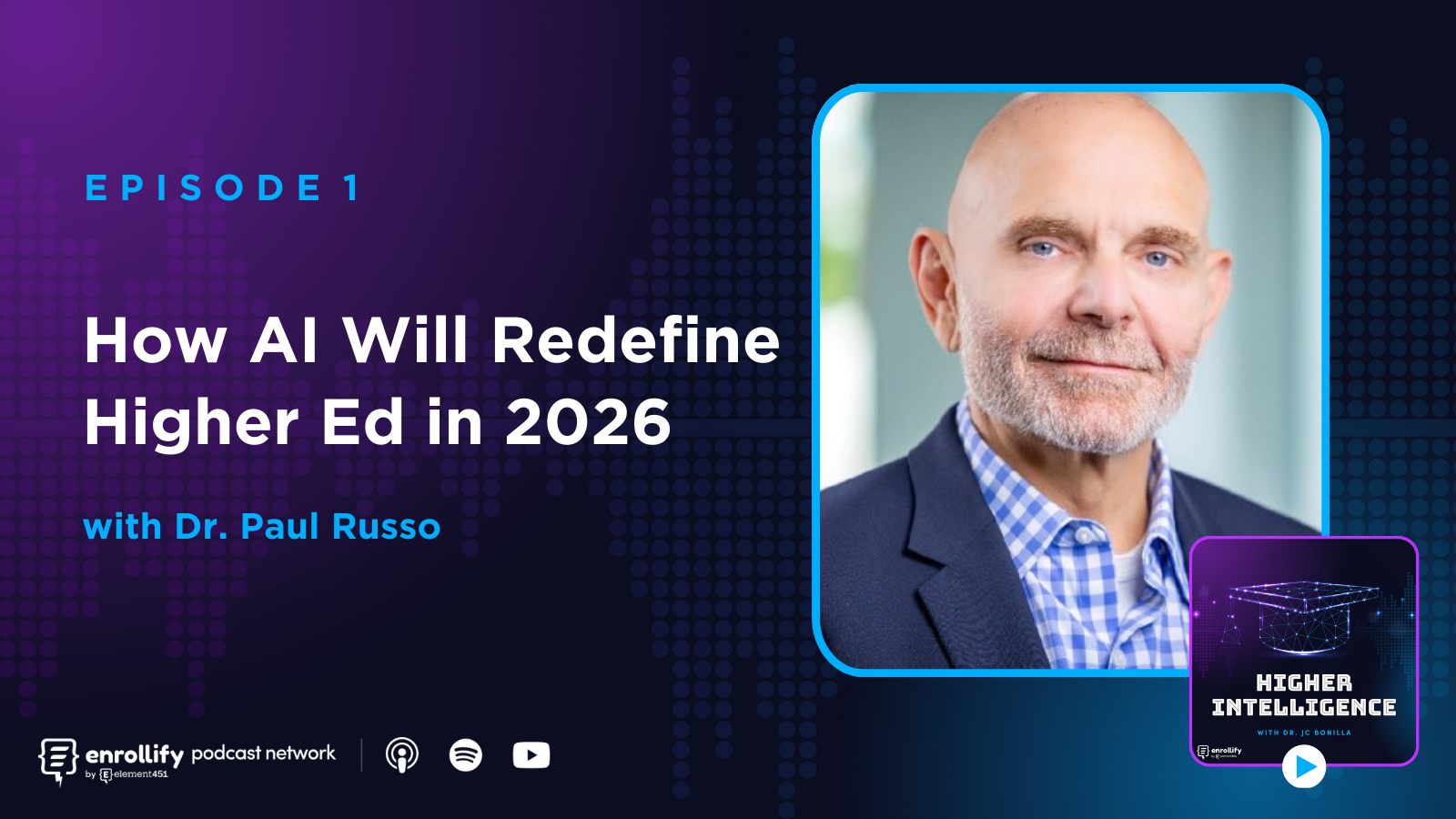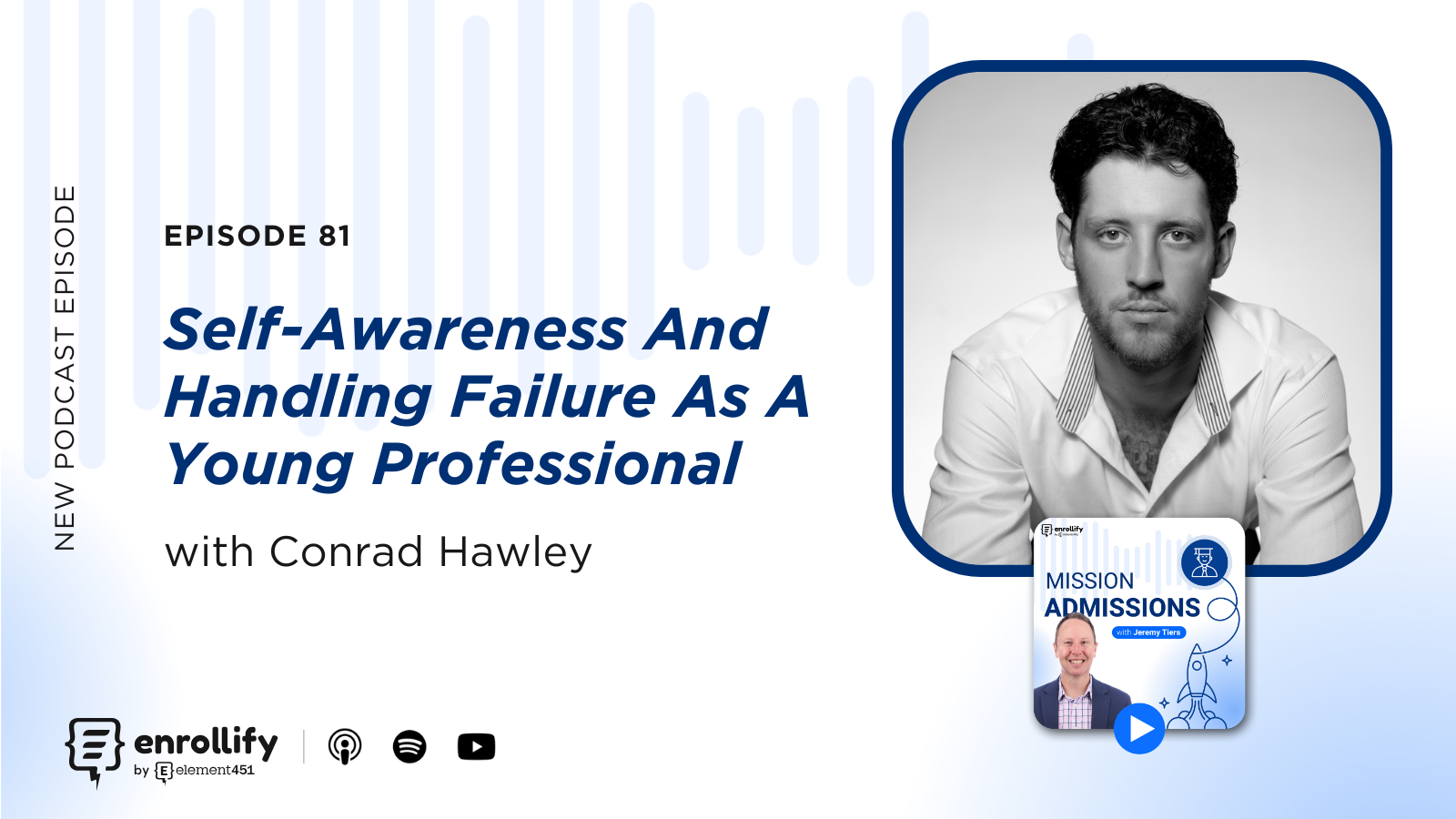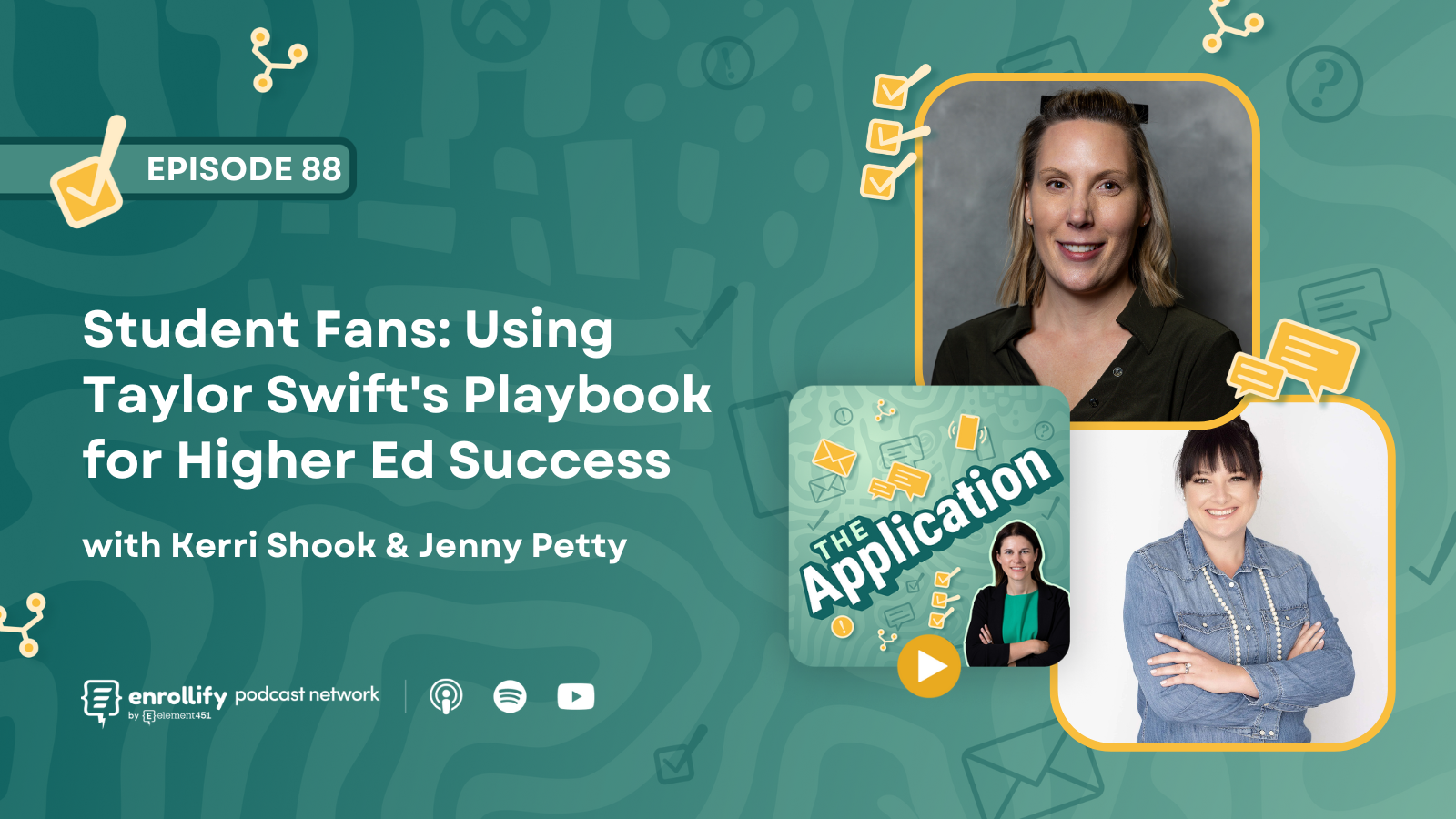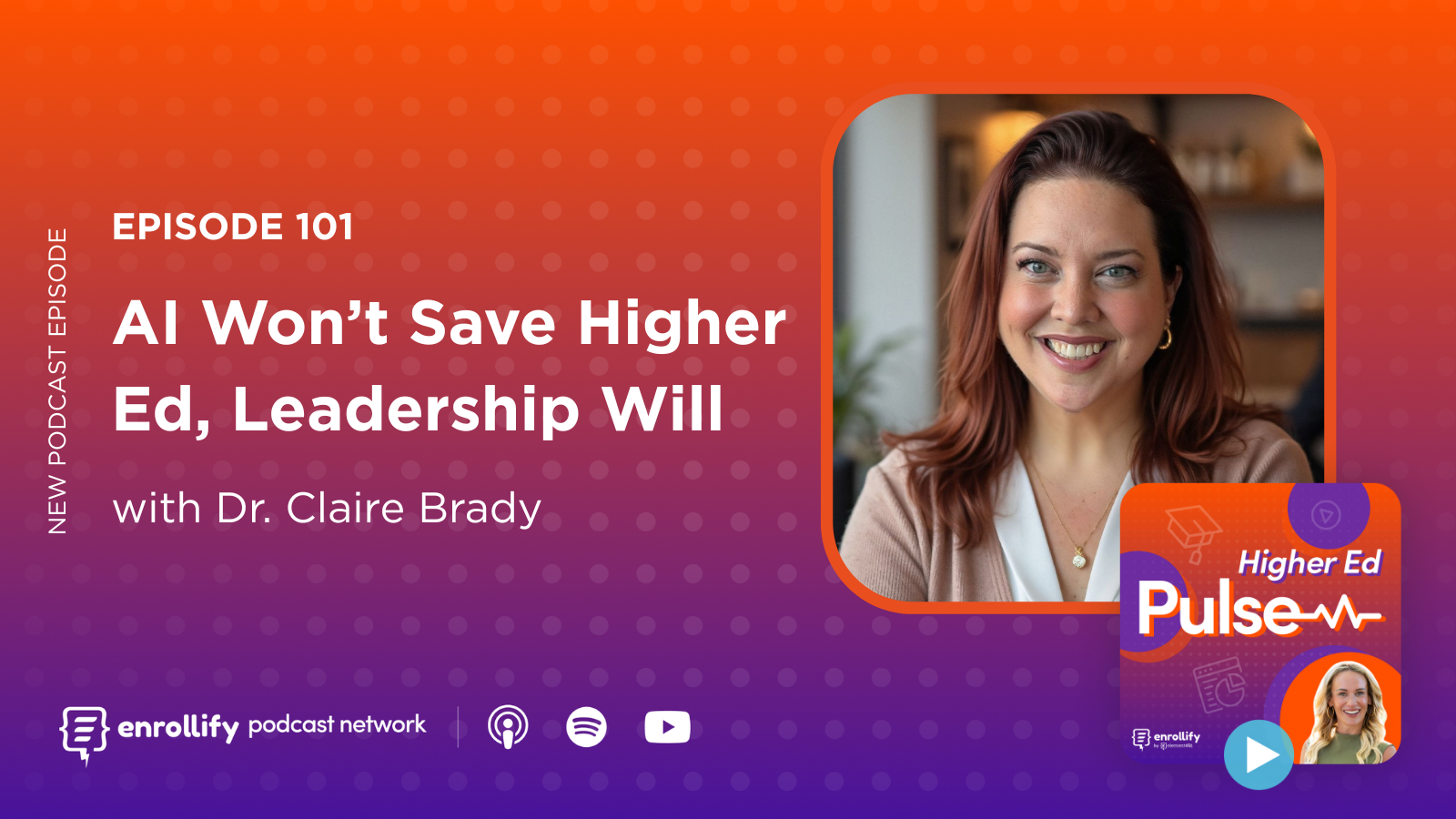About the Episode
Got a story to tell? An innovative idea to share? Fill out our guest nomination form and let's chat!
About the Episode:
In this episode of Mission Admissions, host Jeremy Tiers chats with Bethanne Bialy, a former college admissions counselor turned high school college and career advisor. With firsthand experience on both sides of the desk, Bethanne gives a behind-the-scenes look at what it really takes to support high school students—and what college admissions teams can do to build stronger, more effective partnerships with counselors. This candid conversation unpacks the persistent challenges, communication gaps, and actionable strategies for cultivating real trust between high schools and colleges.
Key Takeaways
- There’s a major disconnect between perception and reality. Many admissions pros underestimate the volume and complexity of high school counselors’ responsibilities.
- Students are overwhelmed—and they need more than just college facts. Counselors are doing emotional support, academic advising, and future planning all at once.
- Communication from colleges needs to be more timely and transparent. Ignoring emails or delaying responses is a dealbreaker for building trust.
- Students aren’t visiting campuses like they used to. Fear of missing school, logistics, and financial concerns are real barriers—weekend visit options matter more than ever.
- Colleges can (and should) do more to support underclassmen and parents. Education about FAFSA, test-optional policies, and the holistic admissions process is still lacking.
- Relationship-building with counselors must be proactive and consistent. If you're only reaching out when you need something, you're doing it wrong.
Why did Bethanne leave the college side for high school counseling?
Bethanne loved her work in undergraduate admissions but found herself craving a deeper, more consistent relationship with students—without all the flights and hotel stays. After years of recruiting in the DMV region while based in South Florida, she made the switch to a high school college and career advising role. What she quickly discovered? The work is just as intense, if not more so. Between course planning, emotional support, and advising students on scholarships and majors, the high school side is a whirlwind of multitasking—and one that many college admissions professionals still don't fully understand.
What do high school counselors wish college admissions folks knew?
For starters, high school counselors aren’t just “application helpers.” They’re academic advisors, mental health check-ins, and support systems for students navigating enormous life decisions—sometimes as early as 9th grade. Bethanne highlights how overwhelmed students are by the college process and how critical it is for colleges to provide clear, student-friendly communication. Her biggest frustration? When admissions reps don’t return emails or phone calls promptly—especially when students are trying to meet a deadline or understand next steps. Pro tip: Your responsiveness matters more than you think.
How can colleges better support underclassmen and undecided students?
Bethanne shares how she uses personality assessments with 9th and 10th graders to spark early career exploration, while also helping students understand how those interests connect to college choices. But with shifting admission policies and a growing number of students using tools like ChatGPT to research colleges, counselors are constantly playing catch-up. That’s where colleges can step in—offering helpful, jargon-free content explaining admissions policies, test-optional changes, early decision vs. early action, and more. The more useful, real-world information colleges provide, the more counselors can amplify that message.
Why aren’t students visiting campuses anymore?
You might be surprised to hear that a major reason is... they don’t want to miss school. Seriously. Bethanne explains that many of her students, particularly in South Florida, are hesitant to fall behind academically. Add in financial limitations, scheduling issues, and a general lack of urgency around visiting, and you’ve got a growing number of seniors committing to colleges they’ve never stepped foot on. Her advice to students is clear: visit in-person if you can. And her message to colleges? Host weekend visit days and get creative with accessible options.
What are students and parents really asking about?
Juniors are deep in the “how do I stand out?” phase—worried about majors, undecided applications, and whether to apply early or regular decision. Seniors, especially the undecided ones, are stressing over which offer to accept and whether they'll regret their choice. Meanwhile, parents are asking everything from “What even is the FAFSA?” to “Is a summer pre-college program worth it?” Bethanne says that many families are going through the process for the first time, or come from international backgrounds, which makes education and clear guidance all the more essential.
What frustrates high school counselors the most about college reps?
Hands down: unresponsiveness. Bethanne shares that when colleges fail to reply promptly—or at all—it creates distrust and leaves students in limbo. When deadlines are approaching or a student’s application status is unclear, that radio silence is more than inconvenient; it’s damaging. On the flip side, when counselors do have great college contacts who share info, offer support, and provide resources for presentations on things like financial aid or scholarships, it makes a huge difference.
If you’re on the college admissions side, take this as your call to action: be present, be helpful, be consistent. Your high school counterparts are doing incredible work to guide students—and you can be a better partner in that journey. Whether it’s helping demystify financial aid, answering emails
Connect With Our Host:
Jeremy Tiers
https://twitter.com/CoachTiers
Attend the 2025 Engage Summit!
The Engage Summit is the premier conference for forward-thinking leaders and practitioners dedicated to exploring the transformative power of AI in education.
Explore the strategies and tools to step into the next generation of student engagement, supercharged by AI. You'll leave ready to deliver the most personalized digital engagement experience every step of the way.
👉🏻 Register now to secure your spot in Charlotte, NC, on June 24-25, 2025!







